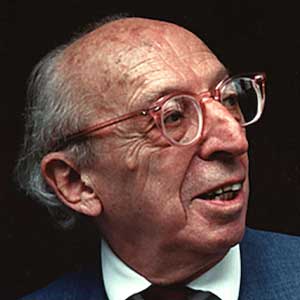Aaron Copland Biography - A Very Quick Guide
Artist:
Aaron Copland
Born:
November 14, 1900
Died:
December 2, 1990
Aaron Copland (November 14, 1900 – December 2, 1990) was an American composer whose music helped define a distinctly American sound in the 20th century. He wrote in a modern tonal style, incorporating jazz, folk material and, later, elements of serialism. Copland was also an important teacher, lecturer, author and conductor.
Biography
Copland was born in Brooklyn, New York, to Russian-Jewish immigrant parents and grew up above the family shop. He became interested in music at fifteen, studying first with Leopold Wolfsohn and Rubin Goldmark, then with Nadia Boulanger in Paris from 1921 - an experience that shaped his professional identity. Returning to the United States, he initially experimented with jazz-influenced works such as Music for Theater (1925) and the Piano Variations (1930), but soon moved toward a more accessible, populist style.
From the mid-1930s, Copland drew on American folk material, writing works that became central to the national repertoire, including El Salón México (1936), Billy the Kid (1938), Rodeo (1942) and the ballet Appalachian Spring (1944). His Fanfare for the Common Man (1942) and Lincoln Portrait (1942) remain among his most recognisable compositions. Copland also made significant contributions to film music, with scores for Of Mice and Men (1939), Our Town (1940) and The Red Pony (1949).
During the early 1950s he was investigated during the Red Scare, though no Communist Party membership was ever proven. Copland continued to compose, conduct and lecture throughout his later life. He died in 1990 at his home in Peekskill, New York.
Biography
Copland was born in Brooklyn, New York, to Russian-Jewish immigrant parents and grew up above the family shop. He became interested in music at fifteen, studying first with Leopold Wolfsohn and Rubin Goldmark, then with Nadia Boulanger in Paris from 1921 - an experience that shaped his professional identity. Returning to the United States, he initially experimented with jazz-influenced works such as Music for Theater (1925) and the Piano Variations (1930), but soon moved toward a more accessible, populist style.
From the mid-1930s, Copland drew on American folk material, writing works that became central to the national repertoire, including El Salón México (1936), Billy the Kid (1938), Rodeo (1942) and the ballet Appalachian Spring (1944). His Fanfare for the Common Man (1942) and Lincoln Portrait (1942) remain among his most recognisable compositions. Copland also made significant contributions to film music, with scores for Of Mice and Men (1939), Our Town (1940) and The Red Pony (1949).
During the early 1950s he was investigated during the Red Scare, though no Communist Party membership was ever proven. Copland continued to compose, conduct and lecture throughout his later life. He died in 1990 at his home in Peekskill, New York.
Top Pieces on 8notes by Aaron Copland
